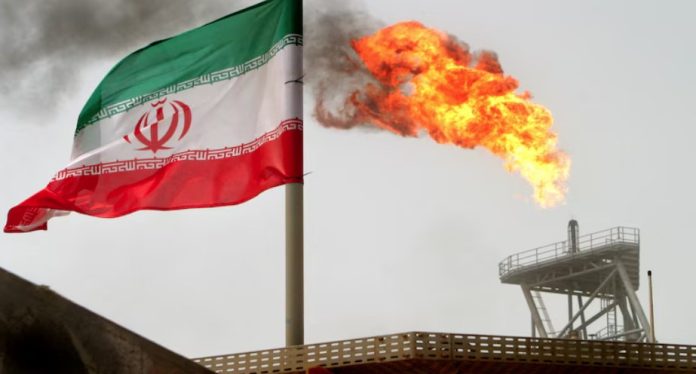Iran has placed a large order with China for a chemical material known as ammonium perchlorate. Ballistic missiles powered by solid fuel are made using this material. Approximately 800 of these missiles might be built with the amount of material requested, according to reports.
Iran Orders Dangerous Missile Material
An Iranian company reportedly used a Hong Kong-based firm to place the order. In the upcoming months, the material is anticipated to reach Iran.
Iran is working to modernize its missile production system, which includes this new shipment of material. Parts of these systems were damaged during attacks last October. Some of the material is also expected to be sent to armed groups that work closely with Iran, like the Houthis in Yemen. These groups have used missiles to target other countries in the region.
The report also says that the deal for this shipment was likely made before March, even before new nuclear talks between Iran and the United States began. This raises concerns about Iran’s military goals while it is also in talks to limit its nuclear program.
Past Accidents and Military Moves
This is not the first time Iran has received missile-related material from China. At a port in southern Iran, a previous shipment—also from China—caused a significant explosion. According to reports, that explosion left hundreds injured and at least 18 dead. It was allegedly brought on by an Iranian military squad handling the hazardous chemical improperly.
B-2 Bombers Arrive in Diego Garcia What Follows an Iranian Attack
Ammonium perchlorate has a reputation for being strong and dangerous. It is used to fuel rockets and missiles because it burns quickly and with great force. Storing and handling this material requires high safety standards. The previous incident shows how dangerous it can be when safety steps are not followed correctly.
Reports suggest that most of the newly ordered material will stay inside Iran. It will be used to restart missile production after several key factories and machines were damaged in airstrikes. These factories use special machines to mix the missile fuel. Many of these machines, called planetary mixers, were destroyed in the attacks.
In addition to rebuilding missile systems, Iran is also working on repairing its air defense systems. These defenses were also damaged during earlier airstrikes. This effort shows that Iran is focusing not only on making new missiles but also on defending its own territory.
Global Concerns and Ongoing Talks
The report about Iran’s chemical order came out during sensitive nuclear talks between Iran and the United States. The goal of these negotiations, which started in April, is to restrict Iran’s nuclear program. At the same time, Iran has been enriching uranium to levels much higher than what is needed for peaceful use. Though Iran says it does not want nuclear weapons, these high levels of enrichment are a concern for many countries.
While the talks continue, other countries are watching Iran’s actions closely. There is concern that even while talking about peace, Iran is quietly rebuilding its missile capabilities. The country has a history of supporting armed groups in other places like Iraq, Lebanon, Gaza, and Yemen. These groups have received weapons and training from Iran in the past.
Message to Iran: U.S. B-52s Operate with Israeli F-35Is Amid Rising Tensions in Middle East
Iran has already sent some missiles to groups in Iraq earlier this year, even though these groups were supposed to be laying down their arms. This shows that Iran’s support for its regional network remains strong.
As for China’s side, officials there have said they are not aware of any such deal. China claims to follow international rules strictly, especially when it comes to shipping materials that can be used for both peaceful and military purposes. They also stated that their export laws are very strict when it comes to dual-use items, which can be used in weapons.
So far, no official statement has been made by Iran about the new shipment of ammonium perchlorate. The Iranian company linked to the order has not commented either. Meanwhile, officials from other countries are trying to understand the full picture and keep a close eye on what’s happening.
While discussions continue at the global level, Iran’s actions in ordering materials that can build hundreds of missiles add tension to an already complex situation.







